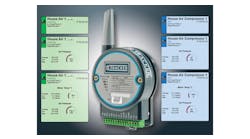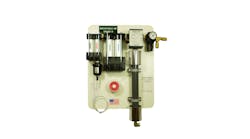Two foundries in Iowa have reach agreements to settle environmental charges at their sites.
In the first case, the U.S. Environmental Protection Agency reached an agreement with Blackhawk Foundry and Machine, concerning lead-contaminated soils at its ductile iron foundry in Davenport.
Blackhawk Foundry and Machine produces a wide range of engineered castings for components of various machines, diesel engines, conveyors, gearboxes, housings, hydraulic pumps, valves and valve bodies, and other products.
According to EPA, the company has agreed to excavate and properly dispose of lead contaminated soil, and then will construct a gravel cap over the excavated area. “The cap will ensure that remaining soil does not run off during rainfall and flood events and that any contaminated dust does not fly away during dry and windy conditions,” EPA stated.
EPA is also requiring Blackhawk to prevent future usage of the site that would cause unacceptable exposure to contaminated soil. There can be no residential use of the property without EPA-approved cleanup (400 ppm). And, in any subsequently issued property deeds, Blackhawk must identify the location of surface impoundments and prevent installation of water supply wells.
In a separate case, Keokuk Steel Castings’ parent company, Matrix Metals L.L.C., has been ordered to pay a $220,000 civil penalty in regard to alleged air-pollution violations at the steel foundry in Keokuk, IA. Iowa attorney general Tom Miller announced the penalty.
The foundry produces carbon and alloy steel castings, including valves and components for pumps, pressure retaining parts, locomotive parts, transit components and military castings, in the range from 1 to 3,500 lb.
Keokuk Steel Castings uses and electric arc furnace and three induction furnaces to produce steel, which is poured into molds in three different lines. Baghouses are used to capture emissions.
Iowa filed a suit against the foundry in late August, alleging air-pollution violations that include excess emissions of particulate matter, failure to properly conduct “stack testing,” failure to comply with the facility’s operating permit, and failure to comply with planning and record-keeping requirements.
Lee County (IA) District Court Judge William L. Dowell recorded a consent decree that resolved the state’s charges, set the penalty, and prohibited future violations by Matrix Metals. The company stated in the decree that it has “worked cooperatively” to address the violations “by taking several steps to attain compliance, installing a new environmental management team, and agreeing to make significant improvements to its environmental management process to ensure continued compliance.”
“We believe Matrix Metals now is fully in compliance,” attorney general Miller said. “There are no outstanding enforcement issues.”








